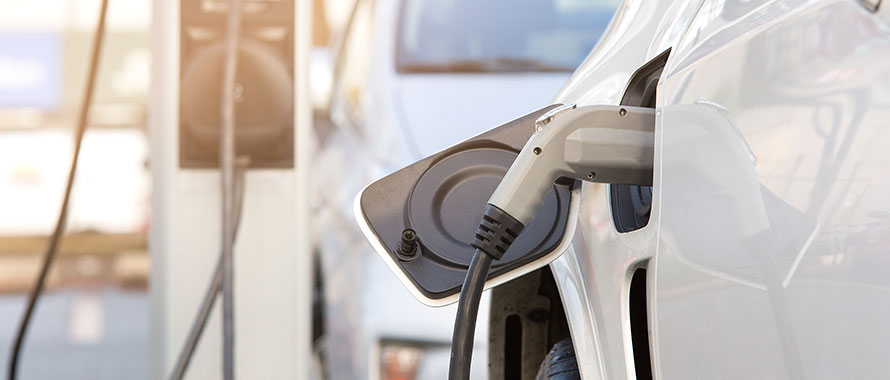A faulty window reversal system on certain Tesla models has led to the recall of more than 1 million vehicles. The problem, discovered by the company during production testing in August, could make the power windows react incorrectly to obstructions and cause an individual’s fingers to be pinched, the Associated Press reported. Affected vehicles include certain Model 3 and Model S sedans and Model Y and Model X SUVs, each from various production years.
As of Sept. 16, Tesla was not aware of any claims or injuries related to the defect, the company noted in its recall report dated Sept. 19.
Featured Solutions
The costs associated with an automotive recall can be covered under the company’s Product Recall Insurance or if the flaw caused harm to consumers, its Products Liability Insurance. In Tesla’s case, a firmware update that will be deployed “over the air” to affected vehicles is expected to resolve the issue. This allows the electric vehicle maker to avoid the logistical hurdle of physically calling back so many vehicles for a repair, Fortune reported.

No matter how many safeguards you take, recalls are always possible. There can be a production problem in anything automotive-related.
“They are not necessarily pulling a part out like a traditional recall but changing the code so that it does what it is intended to do,” said Steve Bartell, Senior Broker, Casualty, Burns & Wilcox Brokerage, Chicago, Illinois. “That is an added plus of having these electric cars: There is no engine and not as much to break down to actually trigger those recalls.”
Auto recall costs can be significant, even with digital ‘fix’
Recalls are a serious risk in the auto industry, with the U.S. seeing a record number of light-vehicle recalls in 2021, including two recall campaigns that involved more than 1 million vehicles each, Automotive News reported earlier this year. In 2018, global consulting firm AlixPartners released data showing that recalls linked to vehicle electronic systems had grown 30% in recent years, contributing to a “growing recall problem” in the industry.
Auto recalls can be extremely costly, Kilmer said. When Hyundai recalled 82,000 electric cars in February of 2021, the recall was expected to cost about $900 million, or an average of $11,000 per recalled vehicle, making it one of the most expensive recalls in history, CNN reported.
Resolving a recall with an electronic update could substantially reduce the cost of the recall, Kilmer said. “This is a software update, but if this was a windshield or something that had to be physically replaced, that would be a massive overhaul compared to this,” he said. “It would not have the same cost implications of having to bring back the 1.1 million cars to the dealerships.”
In fact, Tesla Motors CEO Elon Musk reportedly argued against the use of the term “recall” for his company’s power window issue, calling it “outdated and inaccurate” since the fix was a “tiny over-the-air software update,” Fortune reported. Tesla stock dropped 4.59% after the recall was announced, the Evening Standard reported.
Even without the costs of a physical repair on each vehicle or any product reproduction or replacement, Product Recall Insurance is vital for automakers and their suppliers and can cover the cost of notifying customers, loss of business income, third-party financial loss, and repairing any reputational damage caused by the recall, including a loss of sales.
“The company would still have to pay for the time and labor to complete that software update, and they would have notification costs similar to other recall incidents,” Kilmer said. “There could also be a loss of sales from that. When a problem goes unnoticed until it reaches the consumer, there can be some public relations consulting and advertising that is potentially needed. That can be tough to quantify, but the Product Recall Insurance could pay for that as well.”
Managing an automotive recall can require additional resources, such as setting up a call center for consumers or sending out informational mailers, which can be covered by Product Recall Insurance. Although Tesla’s recall may not involve these expenses, other software-update recalls could, Bartell said. When Ford Motor Company recalled more than 48,000 of its Mustang Mach-E vehicles in June over battery-overheating concerns, for example — an issue that was repaired with a software update sent over the air or by visiting a dealership, according to Ford — the potential severity could have meant a greater need for customer support.
“With issues such as braking or the potential for a car to catch on fire, there is likely going to be less customer trust that the product is going to function properly,” Bartell said. “That is where you may need a customer hotline or more brand rehabilitation.”
Automotive suppliers can be particularly vulnerable to the impact of a recall, according to Kilmer. “Typically, in a recall, responsibility is going to get passed down to the tier 1, 2, or 3 suppliers. Someone else is usually making the part for that company or providing that software,” Kilmer said. “If Product Recall Insurance is not required by their contract with the automaker, suppliers should look into purchasing it.”
Automotive industry has higher potential claim severity
The automotive industry has been the source of some of the most serious recall and product liability claims, Bartell said. The Takata airbag recall that began in 2014, which eventually affected 67 million vehicles, was considered the “largest and most complex safety recall in U.S. history” by the National Highway Traffic Safety Administration, according to Consumer Reports. The faulty airbags were reportedly linked to 19 deaths and over 400 injuries in the U.S., and at least 27 deaths worldwide.

If a product failed, caught fire, or caused harm and someone gets seriously hurt, that is where you are going to have the largest losses. One single instance can end up costing millions of dollars.
In September, Nissan recalled more than 203,000 pickup trucks in the U.S., Canada, and Mexico due to an error that could cause the trucks to roll away while parked, the New York Times reported. In August, Hyundai and Kia recalled over 280,000 vehicles due to a fire risk, which had caused three fire incidents in Canada, Automotive News Canada reported.
When a product has a safety issue that causes harm to a consumer, the company’s Products Liability Insurance could cover legal defense, medical costs, and settlement payments. “If a product failed, caught fire, or caused harm and someone gets seriously hurt, that is where you are going to have the largest losses,” Bartell said. “One single instance can end up costing millions of dollars. With product liability, the severity can be much higher than the recall.”

When a problem goes unnoticed until it reaches the consumer, there can be some public relations consulting and advertising that is potentially needed. That can be tough to quantify, but the Product Recall Insurance policy could pay for that as well.
Catching a potential safety issue early is key in any industry, Kilmer said. If the recent Tesla situation had not been identified, for example, “you could be looking at a potential bodily injury if someone ended up losing a finger or body part,” he said. “A Products Liability Insurance policy is important for the manufacturer and distributor if they are sued because of a bodily injury or property damage.”
Consider punitive damages, rising costs
Products Liability Insurance policies often exclude coverage for punitive damages, which can be assessed by a judge above and beyond direct compensation for the loss. “If it is a repeated behavior or the company knew their product was going to injure somebody, a judge could penalize them additionally,” Bartell explained. “A company usually can get that exclusion removed, unless they had some prior issue.”
Ford recently announced the recall of more than 86,000 Ford Bronco Sports and F-150s due to flickering parking lights that could reduce visibility, Cars.com reported on Sept. 26. Earlier in September, Ford recalled 200,000 Ford Expeditions and Lincoln Navigators over a fire risk with the heating and cooling fan motors in the SUVs, USA Today reported. The automaker has recalled more than 7.5 million vehicles so far in 2022, which could be due in part to supply chain issues necessitating last-minute changes to parts, a source told Consumer Affairs in a Sept. 26 article.
Today’s supply chain issues could also increase the overall cost of a recall, Kilmer said. Shortages of auto parts have lengthened wait times on recall repairs, the Detroit News reported in July, and Reuters reported this month that auto industry suppliers are raising prices on customers “across the board.”
“We have seen claims increasing in recall,” Kilmer said. “The average recall, for all products, could be seven figures at this point. You definitely want to do what you can to protect your product and prevent any type of safety error.”
This may include taking part in pre-incident consulting offered by their insurance carrier. “The insurance carrier can often do crisis simulations and risk monitoring,” he added.

I think individuals cannot necessarily fathom how much something could cost and how much their balance sheet could be impacted by just one recall if they do not buy insurance.
While inflation does mean companies are facing higher costs when replacing parts in the event of a recall, the market for Product Recall Insurance and Products Liability Insurance is “very competitive,” Bartell said. “The insurance marketplace for recall is really soft,” he said. “From an insurance perspective, this is as good a time as ever to go out and buy Product Recall Insurance.”
Business interruption costs should also be considered when purchasing Product Recall Insurance. Unfortunately, business owners in the auto industry may not realize the full extent of the costs they could face until they actually experience a recall. “I think individuals cannot necessarily fathom how much something could cost and how much their balance sheet could be impacted by just one recall if they do not buy insurance,” Bartell said. “Having some financial assurances that their balance sheet is protected is pretty key.”





